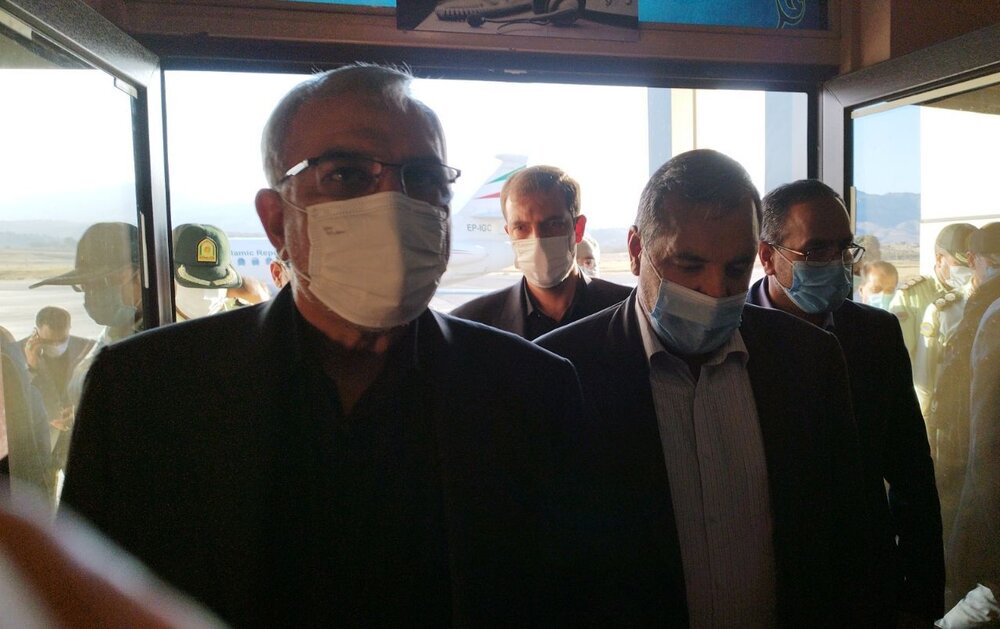Arbaeen pilgrimage helpful in promoting Iran’s medical experience: health minister

TEHRAN – Health Minister Bahram Einollahi has said the Arbaeen pilgrimage will be very helpful in promoting Iran’s medical experience to the neighboring countries.
Moving on the path of health diplomacy is among the ministry’s prioritized programs, IRNA quoted Einollahi as saying on Monday.
Considering that the international conference on the Arbaeen pilgrimage was held with the participation of Iraq, Afghanistan, and Pakistan, we will boost cooperation with these neighboring countries in the field of health, he added.
The Arbaeen pilgrimage, which is one of the largest religious gatherings in the world, comes 40 days after Ashura, the martyrdom anniversary of Imam Hussein (AS), the third Imam of Shia Muslims, and the grandson of Prophet Muhammad (PBUH).
Each year, a huge crowd of people flocks to Karbala, where the holy shrine of Imam Hussein (AS) is located, to perform mourning rituals.
This year Arbaeen falls on September 17.
Before the outbreak of coronavirus, some 2 to 3 million Iranians attended annually in the Arbaeen march. However, last year, the rituals were held virtually to avoid the transmission of the disease.
The fifth international conference on the Arbaeen pilgrimage was held in Tehran on August 23.
The event is an opportunity for all thinkers, especially those who have done research on this event, to explain the various social, political, spiritual, and religious aspects of this great event.
“Arbaeen Lifestyle”, “transnationalization and changes in the Islamic world”, “Arbaeen and identity”, “Arbaeen is a response to spiritual, psychological and educational needs”, “Arbaeen: culture, art, and media”, “Arbaeen: groups and social capital”, “Pathology of Arbaeen”, and “human sciences and Arbaeen” were among the main topics discussed in the international conference.
In April, Einollahi said that developing international health relations with different countries and organizations is one of the government's strategies.
Fortunately, the young generation of Iran has reached great achievements by creating knowledge-based firms.
“Health affects all political, social and economic dimensions of societies,” he said, adding, therefore, we suggest to all foreign embassies to plan and act specifically for health by appointing a health deputy in their system.
Iran is ready to cooperate with other countries in holding international conferences in the field of health, he concluded.
Health development
Based on innovative indicators of health technology development in 2021, Iran was ranked 60th among 132 countries, which shows an improvement of 60 steps compared to 2014, the deputy health minister for research and technology, has announced.
A total of 1,670 knowledge-based firms are operating in the health sector, ISNA quoted Younes Panahi as saying.
He added that there are 13 science and technology parks and 95 technology growth centers in the field of health, while 343 technological products have so far been licensed, and 335 inventions in medical sciences have been patented.
The health technology development is evaluated by the Global Innovation Index with seven indicators, including institutional structure, human capital and research, infrastructure, market and business complexity, technological knowledge, and creativity, he explained.
Medical tourism
Iran attracted more than 125,000 international patients who received medical services during the first quarter of the current Iranian calendar year which started on March 21.
“A total of 125,231 health tourists arrived in Iran during the first three months of the year,” IRNA reported.
“The majority of those travelers came from Iraq, Afghanistan, Azerbaijan, and Persian Gulf littoral states,” the report said.
In August, President Ebrahim Raisi said the Islamic Republic is a regional hub for medical tourism. “Our scientific and medical ranking is acknowledged by international officials,” he added, saying Iran can rightly claim that it is a hub of health services.
Iran has a perfect position in the region and the world in terms of medical sciences as many Iranian cities are considered “health hubs,” Raisi said.
According to available data, Iran hosts an average of one million medical tourists each year. “About one million medical tourists, mainly from the neighboring countries, arrive in Iran annually,” Mohammadreza Tarjoman who presides over the Health Ministry’s tourism office, said in April.
“The majority of inbound medical passengers come from the neighboring countries, including Iraq and Afghanistan,” the official said. Talking about hospitals and clinics, he said a selection of 200 Iranian medical centers have permission to accept foreign patients.
MG
